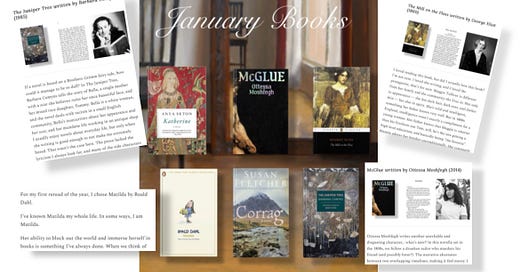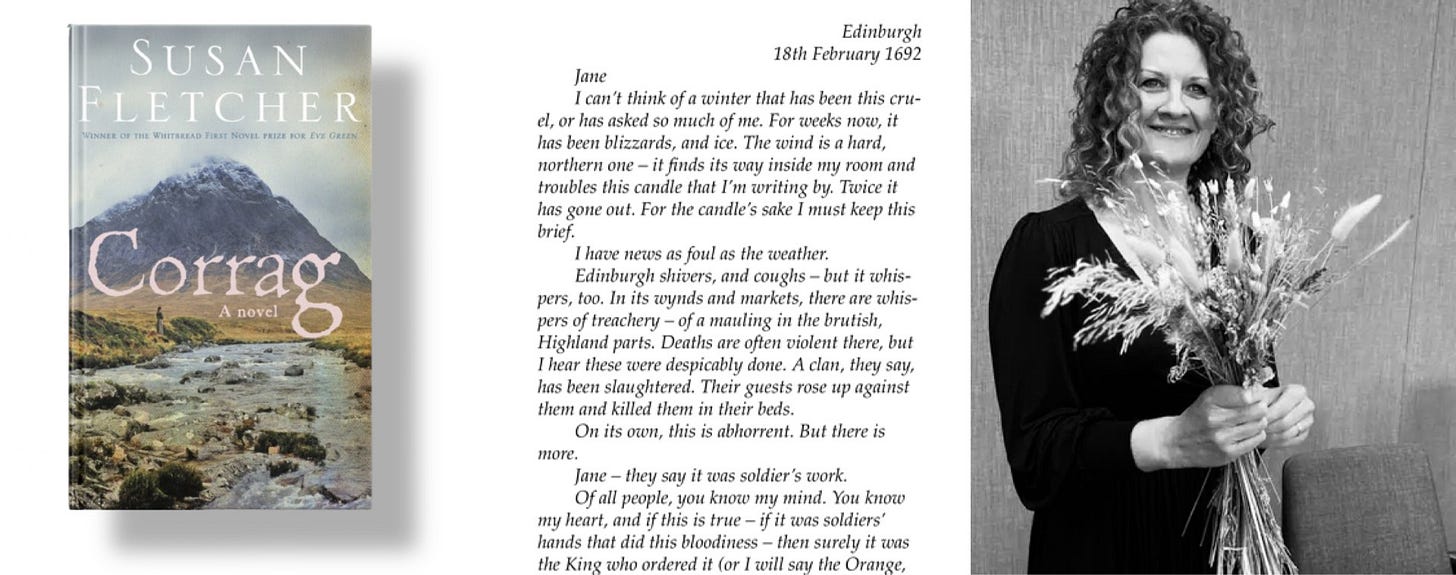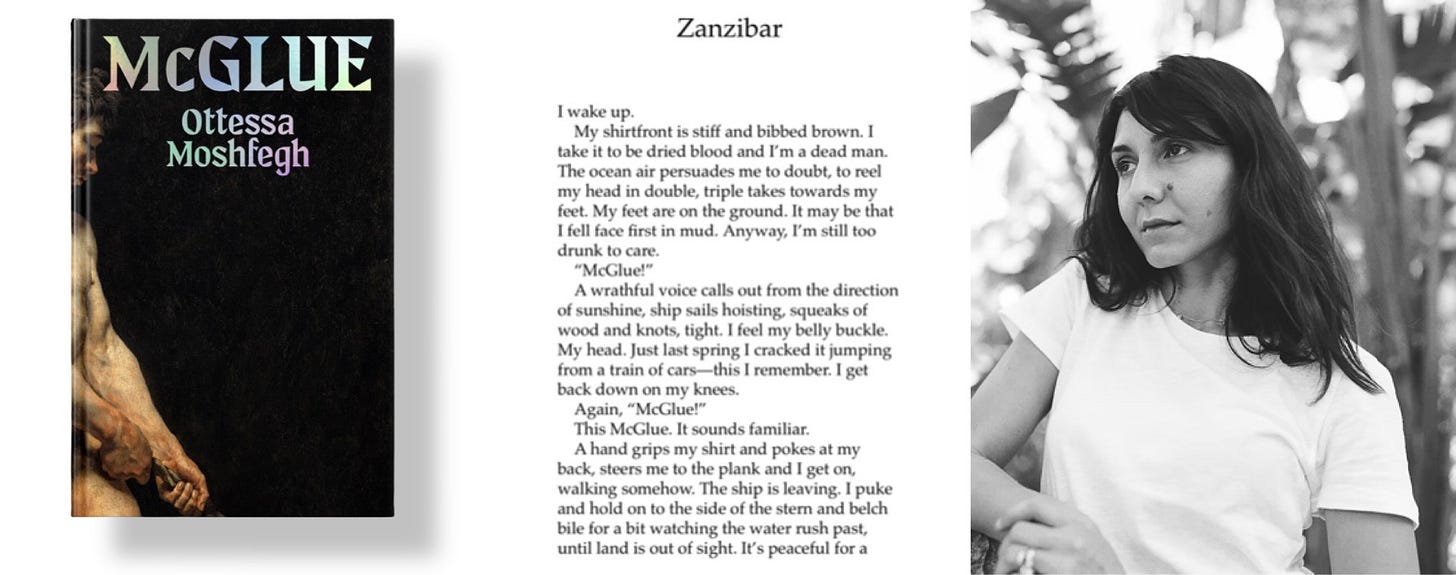Into the Archivist’s Mind: January Books
Reflections about the books I read (and re-read!) in January!
Here’s the first wrap-up of the year! One of my new year’s resolutions was to read slowly (succeeded). Another one was to read fewer books each month, (ehh…) I still ended up reading six books! So it seems I just can’t stay away from them (but I guess there are worse addictions to have). I also did stick to my goal of re-reading at least one book a month. Here’s all my thoughts, thank you for reading!
— Ella.
Katherine written by Anya Seton (1954)
This is a must read for lovers of historical fiction! Anya Seton takes two real historical figures, Katherine Swynford and John of Gaunt, and writes a romanticized retelling of their long and complicated love story. The novel is full of vivid descriptions of 14th century life, full of marriages, deaths, illegitimate children, and a lot of supporting characters (maybe too many). I found the protagonist fascinating. The story follows Katherine from the age of 15, we witness her growth, her mistakes, and her journey to maturity as she evolves from a naive girl into a strong woman, through her roles as a lover, mother, and resilient figure. Unfortunately her romantic partner didn’t win me over, in fact, I often found him more insufferable than interesting.
The writing style also didn’t meet my expectations. I was hoping for something more poetic or evocative. The book dragged sometimes, especially in the middle. Many of the secondary characters felt unnecessary to me, and likely contributed to the novel’s excessive length. But, of course, I deeply admire the impressive research that clearly went into creating this story. I haven’t read that many historical novels but I expect this level of commitment to be the standard. I often found myself looking up the historical accuracy of events! And even if it wasn’t a perfect book for me, it was still an interesting read and again, perfect for fans of the genre.
Corrag or Witch Light written by Susan Fletcher (2011)
Where to even begin to describe this incredible book? Let’s see: the Scottish Highlands. Three generations of women accused of being witches. Love. Nature. Healing. Protection. Finding a family. Massacre. Prejudice. Isolation. A true story. In 1692, members of the MacDonald clan were murdered by government forces for refusing to swear loyalty to the new monarch. As the author writes in the afterword, one of the testimonies about that brutal night came from a woman: Corrag. Like her mother and grandmother before her, Corrag has been treated cruelly her entire life, she’s called a witch, a hag, and when we first meet her, she’s imprisoned in a dark and grimy cell, waiting for her execution. When Reverend Charles Leslie visits her, he, too, is initially prejudiced against her. He’s looking for the truth about the Glencoe massacre and, as the story unfolds, Susan Fletcher narrates it through two narratives: Corrag tells her life to Leslie, and at the end of each chapter, we read Leslie’s letters to his wife, reflecting on their conversations.
Let me just say this: every word in this novel is poetic, lyrical and powerful. Fletcher’s prose is some of the most beautiful I’ve ever read. This is one of my favorite passages:
I've heard fate talked of. Is not a word I use. I think we make our own choices. I think how we live our lives is our own doing, and we cannot fully hope on dreams and stars. But dreams and stars can guide us, perhaps. And the heart's voice is a strong one. Always is. Listen to it, is my advice. If I give no more of it, take this as all I have to say on life, and how to live it (for is my life not nearly done?). Your heart's voice is your true voice. It is easy to ignore it, for sometimes it says what we'd rather it did not - and it is so hard to risk the things we have. But what life are we living, if we don't live by our hearts? Not a true one. And the person living it is not the true you. That's just my way of thinking. Not many think this way.
The story is heartbreaking, Corrag’s life is marked by horrors, death, and isolation, but it is also deeply hopeful. She has an extraordinary connection with nature and animals, and after wandering through the woods alone for some time, she finds people she can finally trust, almost as a family. Love is a central theme in the book. Corrag loves and worships the earth, and every creature that lives in it. But Corrag’s mother had always warned her that love is almost a weakness, and Corrag grew up believing it. However, when she meets Alasdair and the MacDonalds, her world changes. The connection with Alasdair is complicated — he’s married — but the author never falls in the internalized misogyny trap that sometimes we can find in these situations. Alasdair’s wife, Sarah, is a kind and generous woman, and the narrative never pits the two against each other, they both find a friend in each other, this was lovely. Speaking of love, the letters Leslie writes to his wife were so tender to me. Watching his character change his mind and growing fondly of Corrag was lovely, and the ending was very moving. But at the end, Corrag’s voice is the one who shines the most. Her strength and her connection to the natural world make her unforgettable.
This is an important book, a reminder that we should never forget history and the horrors women have suffered for centuries. But I loved it because it is also a story of healing, humanity, and hope.
The Juniper Tree written by Barbara Comyns (1985)
If a novel is based on a Brothers Grimm fairy tale, how could it manage to be so dull? In The Juniper Tree, Barbara Comyns tells the story of Bella, a single mother with a scar she believes ruins her once beautiful face, and her mixed race daughter, Tommy. Bella is a white woman, and the novel deals with racism in a small English community, Bella’s insecurities about her appearance and her scar, and her mundane life working in an antique shop. I usually enjoy novels about everyday life, but only when the writing is good enough to not make me extremely bored. That wasn’t the case here. The prose lacked the lyricism I always look for, and many of the side characters I found insufferable, particularly Bella’s mother, whose racism toward little Tommy was infuriating. Even if we’re basically living inside Bella’s mind for the entirety of the novel, she remains distant, almost cold, even in moments when she claims she loves someone. The story does pick up toward the end, when a horrific event happens and Bella dives completely into madness and shock. This gives me hope that this particular novel may simply not have been for me; I’m still curious and interested in reading Comyns's other works, hoping they will be better.
Matilda written by Roald Dahl (1988)
For my first reread of the year, I chose Matilda by Roald Dahl.
I’ve known Matilda my whole life. In some ways, I am Matilda.
Her ability to block out the world and immerse herself in books is something I’ve always done. When we think of Matilda, we often remember a little girl with powers, but we forget how deeply sad her story truly is. She is born into a family that inexplicably despises her. Her father bullies her, insults her and even uses misogyny to hurt her. Her mother is indifferent to her, and she has no real bond with her brother. But Matilda finds love and warmth in the books she borrows from the library, and when she finally goes to school, she discovers that same love in her teacher, Miss Honey, and in her friend Lavender. Matilda also discovers that she possesses a unique power: telekinesis. Combined with her intelligence and precocious nature, her power allows her to do what Roald Dahl calls “miracles.” She uses her abilities to make Miss Honey’s life better and to stand up to the terrifying Miss Trunchbull, the cruel headmistress.
It’s impossible to talk about Matilda without mentioning the movie directed by Danny DeVito. I said earlier that I’ve known Matilda my whole life because I can’t recall the first time I saw the movie, it has always been a part of me. When I finally read the book at age 14, the movie was already engraved into my heart as a favorite. I read it in Italian at the time and enjoyed it, but not as much as the film. Now that I have reread this as an adult and in the original language it was written, I still feel the same. The book is undeniably wonderful. It has a villain, Miss Trunchbull, who is unforgettable in her cruelty, as well as a counterpart, Miss Honey, who is instantly lovable. It is obviously targeted for children, the writing in really simple and Dahl often writes the meaning of some more complex words he uses. The story is ridiculous and implausible (Miss Trunchbull literally bullies and beats her students, and no one says a thing), but its magic makes it a must read. I believe the film adds even more depth to Matilda’s character. It portrays her love for books as something even more profound and makes her pain feel more real. Matilda is a character who will always stay with me. She reminds me, even as an adult, to remain kind and gentle, no matter how hopeless or painful life may feel. She is, truly, the most special character.
McGlue written by Ottessa Moshfegh (2014)
Ottessa Moshfegh writes another unreliable and disgusting character… what’s new? In this novella set in the 1800s, we follow a drunken sailor who murders his friend (and possibly lover?). The narrative alternates between two overlapping timelines, making it feel messy. I didn’t enjoy this, not because of the unlikable protagonist (it takes more to shock me) but because I found the writing weak. The use of slurs while implying the protagonist’s queerness felt unnecessary and irritating. Moshfegh’s style is still evident here, but I believe she shines more in long form novels like Lapvona and Eileen. I’ve had similar issues with her short story collection, which also left me unsatisfied, like something was missing. Also I think it’s time for her to finally write at least one likable character, this felt all too repetitive to me.
The Mill on the Floss written by George Eliot (1860)
I loved reading this book, but did I actually love this book? I’m not sure. I loved the writing, and I loved the protagonist, that’s for sure. Maggie Tulliver is different from her family and the community she lives in. Not only in appearance — she has dark hair, dark eyes, and darker skin — but also in spirit. She’s wild and intelligent, something her father knows very well. But in 1800s England, intelligence wasn’t exactly a compliment for a young woman. Her father knows that Maggie is smarter than his firstborn son Tom, still, he’s the one getting a high level education, and basically being “the favorite”. Maggie adores her brother unconditionally. She constantly seeks his approval, trying to earn his love. But Tom is cruel, rarely showing her any affection. I despised everything about him, he’s disgusted by his classmate Philip (a kind hearted boy with a physical deformity) and treats Maggie just as horribly. When she later finds love in Philip, now essentially Tom’s enemy, his cruelty toward her grows stronger. For this, Tom never forgives her. And later, when Maggie falls in love again, it still isn’t good enough for Tom, who believes he has the right to control her life. Throughout the novel, Maggie exists to please the men around her: her father, her brother, and her two romantic interests. She’s a brilliantly written character, beginning as an insecure little girl and growing into a strong willed woman who dares to speak her mind.
George Eliot included some critiques of patriarchy, the role of women in society, and even racism and ableism. With Maggie, she created an incredible heroine who struggles against the injustices life throws at her. Eliot writes her beautifully, but the ending left me frustrated. I will not spoil it for you, but by the final pages, it all felt pointless to me. Maggie’s redemption, her sacrifices. It made sense in a realistic way, but it also felt like a betrayal. After everything, was this really what she deserved? It left me with a sense of hopelessness. I know I’ll miss Maggie. And I’ll be thinking about this novel for a very long time.










